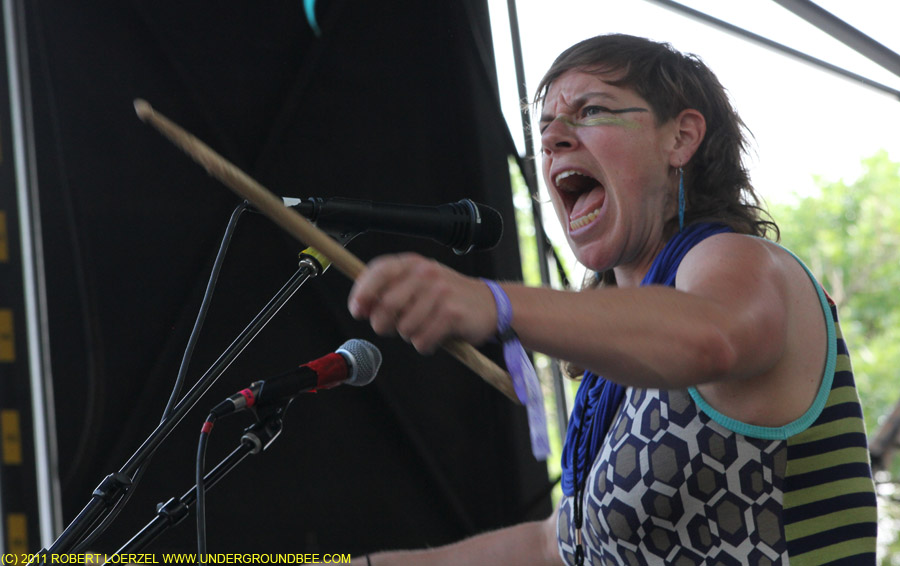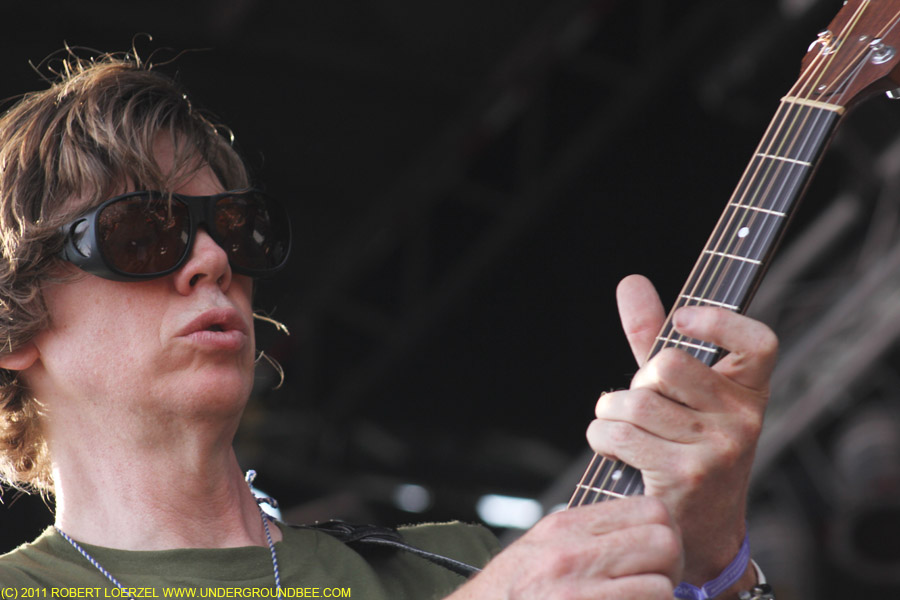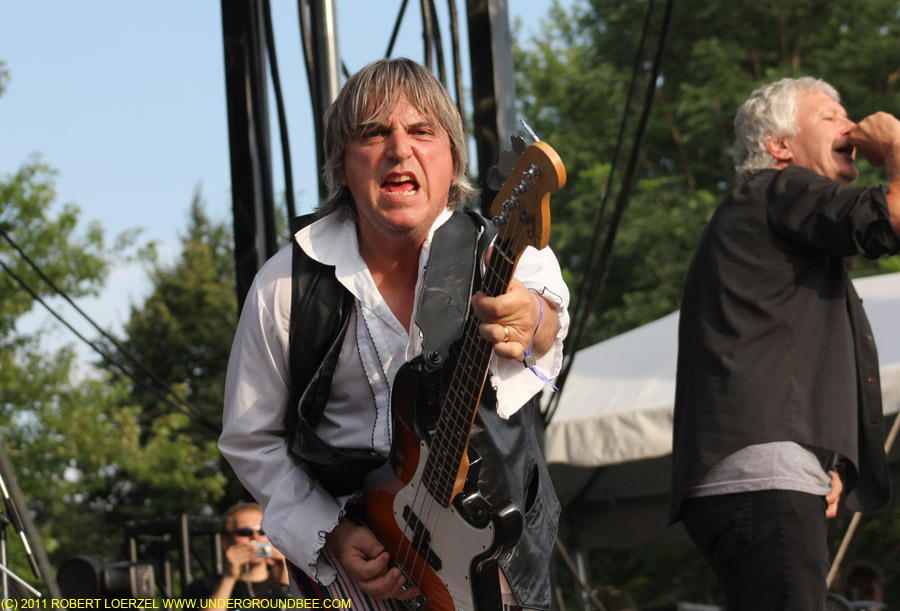This year’s Pitchfork Music Festival includes some reruns from previous year’s editions — such as Friday’s headliner, Animal Collective — as well as the usual smattering of new acts that have received the Pitchfork website’s stamp of approval. It’s a reasonably diverse lineup and considerably more interesting than what’s coming up later this summer at the other big summer fest in Chicago, Lollapalooza.

In some previous years, the fest’s first day featured a theme, such as bands performing albums in their entirety or playing songs requested online by fans. This time, it was just a Friday full of music, with the show starting mid-afternoon. EMA (aka Erika M. Anderson, former member of the Gowns) got things off to a good start with her band’s set, which built from quiet verses to louder moments — not loud choruses or solos, so much as instrumental passages when the volume of the guitars and violin and drums went up, with Anderson showing a wakening sense of urgency, lifting up her guitar or kicking. For her last song, “California,” she put down her guitar and chanted to the crowd, almost like Velvet Underground-style spoken word, to dark, doomy string accompaniment. It was an odd mismatch with the rest of EMA’s music.

Tune-Yards (aka Merrill Garbus) was one of the day’s highlights, agilely reconstructing the complex, quirky layers of her studio recordings with assistance from three backup musicians, some looping pedals, a ukulele and her strong, brassy voice. Her latest album, W H O K I L L, has been praised by some critics as one of the year’s best records. As a live act, Garbus seemed like she was having a lot of fun. Making that complicated music wasn’t work for her — just a cool game. Her face often took on the intense look of someone screaming in anger, but then she would flash a disarming smile. And when the clattering percussion cut out in some passages, allowing her voice to come through almost a cappella, you could feel its strength.
In one of the scheduling conflicts that can drive music fans crazy, Tune-Yards was playing at the same time as Battles was across the park; I caught some of each set. Battles seems to have survived the departure of its multi-instrumentalist and vocalist Tyondai Braxton just fine. The emphasis was still on tricky time signatures, a sort of indie-rock version of math rock.

Sonic Youth’s Thurston Moore, who recently released a mostly acoustic and mostly mellow album, Demolished Thoughts, played a, yes, acoustic and mellow set of his solo music. “You guys want to hear songs about rape, incest and carnage?” he asked sarcastically just before playing alongside a harp and a violinist. “We’ll do the best we can.” If anything, Moore’s set was a little too lulling for the festival scene, but it’s a fascinating musical exercise to hear the sort of droning chords and alternate tunings he plays with Sonic Youth with all of the noise stripped away. Some of the songs feature just a small smattering of vocals, more like haiku than typical rock lyrics.

The reunited “classic” lineup of Guided By Voices — that is, to say, the version of the band that played on classic records such as Bee Thousand — played a set of greatest hits mostly from that era. Neko Case joined the band on harmony vocals on the first song of the set, “Echos Myron.” Robert Pollard already seemed to be fairly sloshed as the band began playing — although I heard another GBV fan remark that he seemed less drunk than usual. Either way, he was right on target with his singing of all those fantastic lyrics, even if he wasn’t at his sharpest with the kicks and jumps and microphone twirls. This lineup of GBV is apparently going back into retirement soon, but Pollard continues to be prolific with solo albums and other projects. And it will be a surprise if GBV doesn’t surface again in some form. Friday’s made a good case for keeping the band going until the end of the universe.

With her usual casual and unassuming air, Neko Case beautifully sang a strong set of songs, mostly drawn from her last couple of albums, plus a couple of new ones. Judging from that evidence, it doesn’t sound as if she’s going to make any dramatic change in her style of music on her next record — which is perfectly fine, considering how staggeringly great her last couple of albums have been, proving that she’s not just a fabulous singer but also a true poet of musical and lyrical form. Case’s band and harmony vocalist Kelly Hogan know exactly how to provide the perfect accompaniment for her. It was not only a joy to hear Case’s and Hogan’s voices blending, but also the way Jon Rauhouse’s pedal steel guitar sounds like a plaintive human cry, a third voice entering into the harmony.

And then came the headliner, Animal Collective. This band has played some interesting music over the years, and its 2008 performance at Pitchfork wasn’t bad. As I noted back then: “Nice trance vibe, though I wish it had taken off into higher realms.” This year, Animal Collective’s attempts at creating a trippy ambience just fell flat. The psychedelic visuals on the big video screens failed to distract from the fact that the songs had taken on an almost grating edge.
More Pitchfork Music Festival 2011 coverage: Day One Photos / Day Two Photos / Day Two Review / Day Three Photos / Day Three Review / More Photos / Photos for WBEZ
3 Replies to “Pitchfork Day One Review”